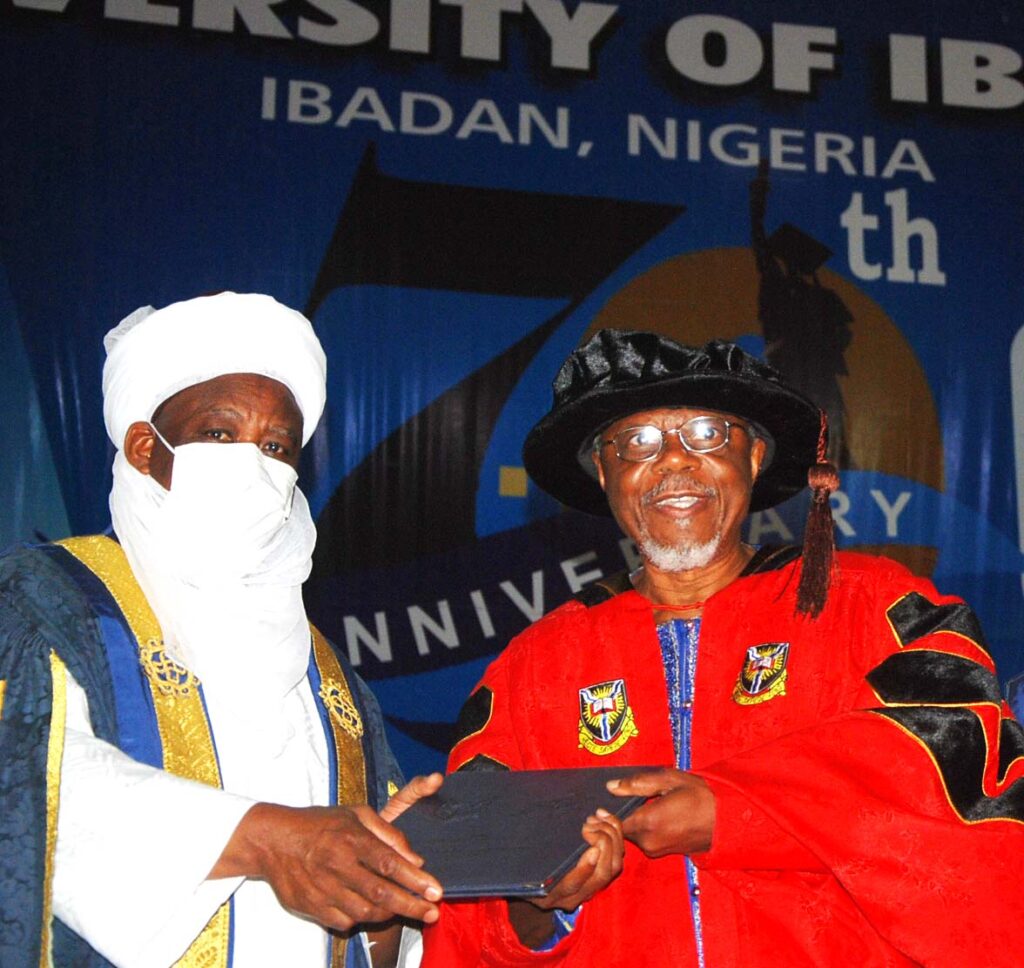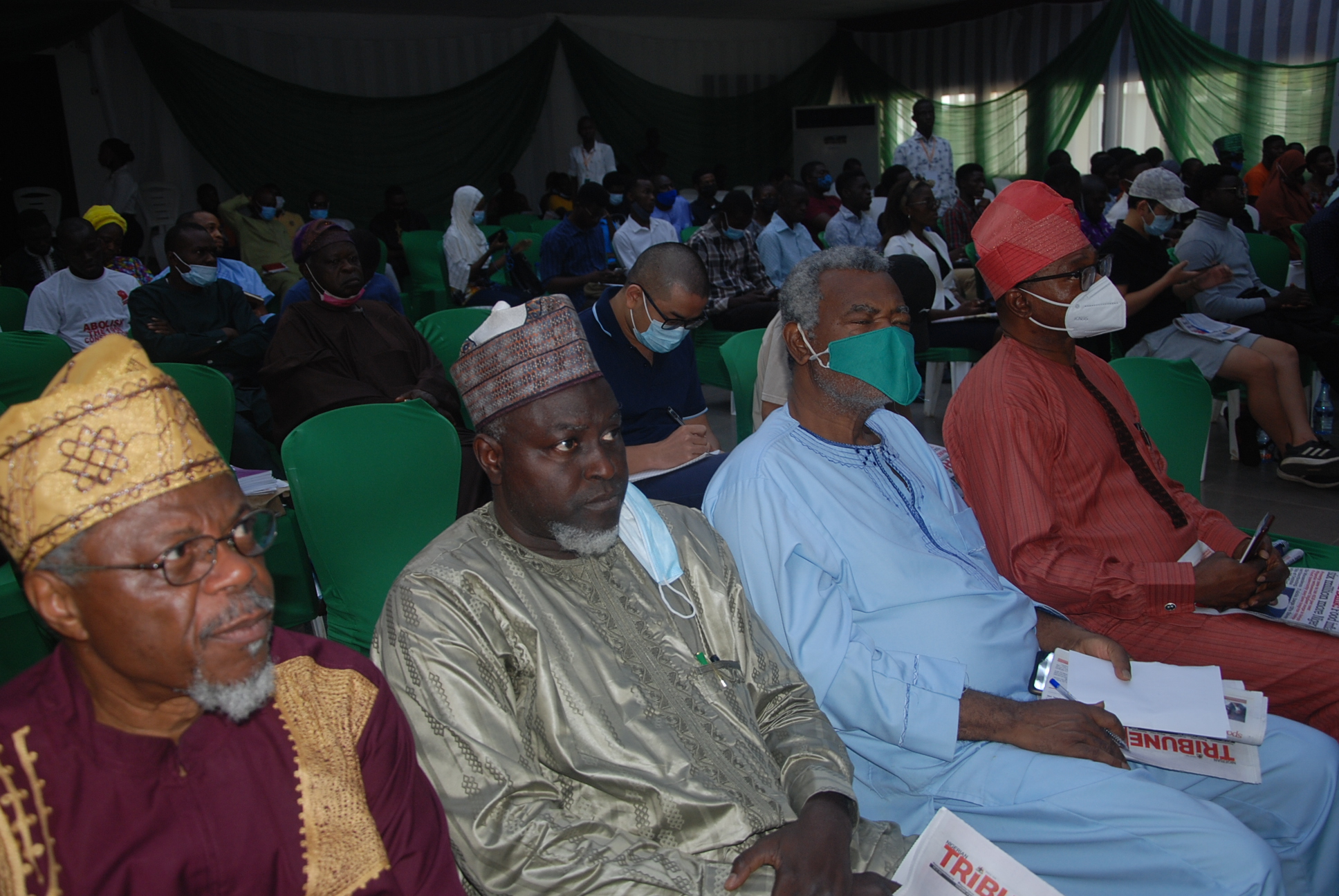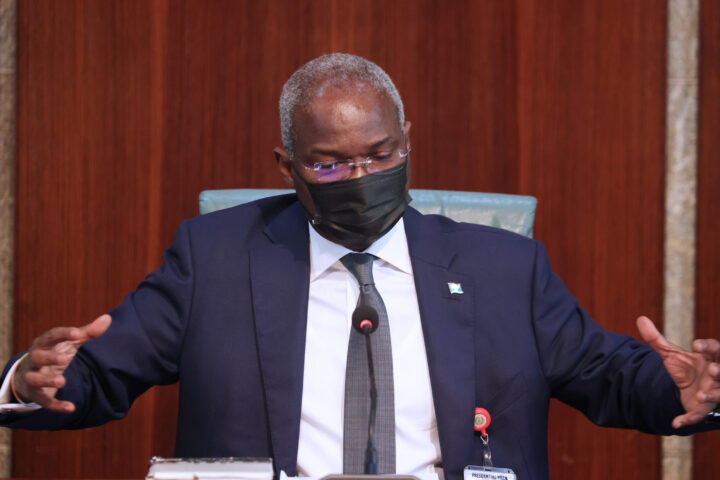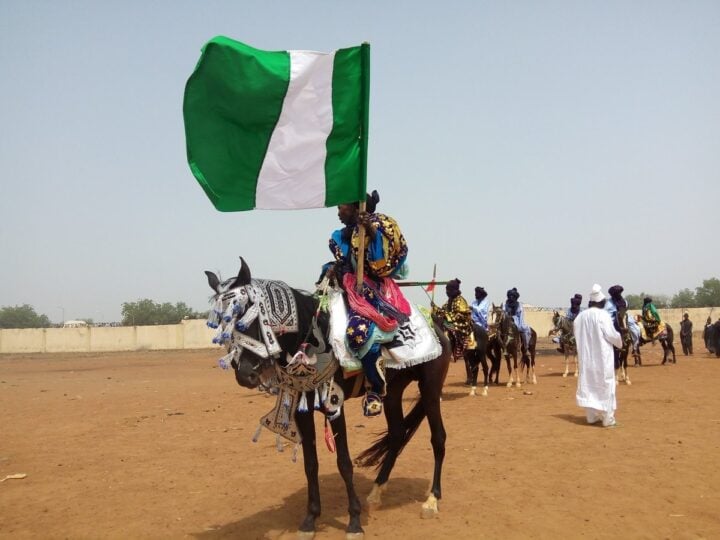Toyin Falola, professor of history at the University of Texas, has unveiled his latest book titled ‘Understanding Modern Nigeria: Ethnicity, Democracy, and Development’.
The presentation of the book took place at a ceremony held on Thursday at the University of Ibadan.
Stakeholders drawn from various fields spoke on the importance of the book in the light of Nigeria’s present realities, and called for a national dialogue to proffer solutions to the country’s challenges.
Speaking at the event, Olutayo Adesina, a professor and convener of the event, commended Falola for the effort put into the publication.
Advertisement
“Falola has put together a volume that will make us create a new country that will be for us all. I understand Falola’s passion for Nigeria. Nigeria can still be salvaged,” he said.
Olufunke Adeboye, dean of the faculty of arts, University of Lagos, said the publication is “not a regular history book”.
“It is borne out of Falola’s passion for Nigeria. He has written a lot on Nigeria. It is Falola’s contribution to the debate on the problems of Nigeria. The book is situated in historical context. He identified the ailments of Nigeria — political violence, corruption, among others. Marginalisation of women in his book caught my attention. Policies to aid women emancipation must be encouraged. Until there are penalties, many issues affecting women will continue,” Adeboye said.
Advertisement
“The book also identified politicisation of religion, religious extremism, and fundamentalism. There must be strong governmental ethics. True federalism must be practised. Integration of youths must be encouraged. Agriculture must be revived. There must be commercialisation of cultural icons.”
On his part, O.B.C. Nwolise, a retired professor of political science, said there is a need for political leaders to understand the place of research in advancing sustainable development.
“In the last 20 years, Nigeria has not been a nation; it has not been a republic; it has not been a democracy; it has not been a federation. Ethnicity, absence of values are Nigeria’s biggest problems. Education is not our priority,” he said.
“We started talking about economic diversification in the 60s and in 2021 we are still talking about it. There is deception here. There is lack of respect for knowledge. There is the hatred of the educated elite.
Advertisement
“Until we respect research, knowledge, Nigeria is going nowhere. Our political leaders lack the culture of dialogue. The functions of the police are not in our constitution. We have no counter-culture for our youths. There are no programmes for human resource development in Nigeria. Nepotism is the worst type of corruption. Nigeria has no national interest. There must be national dialogue to salvage Nigeria.”
Meanwhile, in another development, Falola received his doctor of letters (D.Litt) degree from the University of Ibadan at the convocation ceremony held on Wednesday.
The institution had earlier announced the development in February.
With the award, Falola is the first person to ever receive the academic degree at the institution.
Advertisement
“I am very happy with the award. It is a process that I worked for and anything that you work for brings you tremendous satisfaction. I appreciate the honour by the university. It is a way of also recognising my scholarship over the years. It is a privilege to do more work. I have to bring more recognition to the university and through the university, more recognition to the city of my birth,” he said.
“The award will consolidate my scholarship and make me remain more productive. I hope my mentees will take the lesson of humility from this because it takes a level of humility. Part of the admission process was to go and look for my WAEC result, GCE, BA, PhD. Accidentally, I found many of them. There is a humbling side to it which others should learn from.
Advertisement
“Don’t forget that it is not an honorary doctorate. It is an academic degree. How does a man approaching 70 undertake the process for such degree? To me, that is unique. Bear in mind that the academic D.Litt is the first in the humanities at the University of Ibadan, in the country and perhaps in the continent. It is similar to applying for a PhD. You apply, you submit all your papers; the school can decline or accept you. They can ask for more paper work. It is a two-year process.
“The department that is awarding the degree will do its evaluation; thereafter it moves to the faculty for its evaluation. Thereafter, they will call on external assessors. Cumulatively, you are looking at three stages of a series of meetings. And you know how difficult it is for there to be a consensus in the university.”
Advertisement

Advertisement
Add a comment





